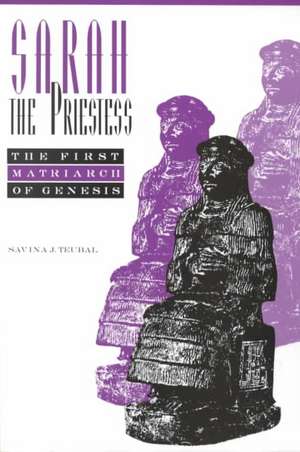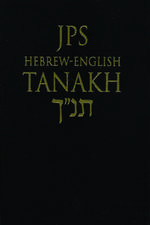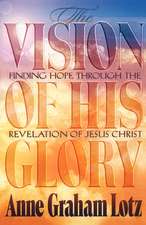Sarah the Priestess: The First Matriarch of Genesis
Autor Savina Teubal Cuvânt înainte de Raphael Pataien Limba Engleză Paperback – 14 dec 2004
The only source in which Sarah is mentioned is the Book of Genesis, which contains very few highly selective and rather enigmatic stories dealing with her. On the surface, these stories tell us very little about Sarah, and what they do tell is complicated and confused by the probability that it represents residue surviving from two different written sources based on two independent oral traditions. Nevertheless, the role which Sarah plays, in the Genesis narratives, apears to be a highly energetic one, a role so active, in fact, that it repeatedly overshadows that of her husband.
In a patriarchal environment such as the Canaan of Genesis, the situation is discordant and problematic. Dr. Teubal suggests that the difficulty is eliminated, however, if we understand that Sarah and the other matriarchs mentioned in the narratives acted within the established, traditional Mesopotamian role of priestess, of a class of women who retained a highly privileged position vis-a-vis their husbands.
Dr. Teubal shows that the “Sarah tradition” represents a nonpatriarchal system struggling for survival in isolation, in the patriarchal environment of what was for Sarah a foreign society. She further indicates that the insistence of Sarah and Rebekah that their sons and heirs marry wives from the old homeland had to do not so much with preference for endogamy and cousin marriage as with their intention of ensuring the continuation of their old kahina-tradition against the overwhelming odds represented by patriarchal Canaan.
In a patriarchal environment such as the Canaan of Genesis, the situation is discordant and problematic. Dr. Teubal suggests that the difficulty is eliminated, however, if we understand that Sarah and the other matriarchs mentioned in the narratives acted within the established, traditional Mesopotamian role of priestess, of a class of women who retained a highly privileged position vis-a-vis their husbands.
Dr. Teubal shows that the “Sarah tradition” represents a nonpatriarchal system struggling for survival in isolation, in the patriarchal environment of what was for Sarah a foreign society. She further indicates that the insistence of Sarah and Rebekah that their sons and heirs marry wives from the old homeland had to do not so much with preference for endogamy and cousin marriage as with their intention of ensuring the continuation of their old kahina-tradition against the overwhelming odds represented by patriarchal Canaan.
Preț: 199.51 lei
Nou
Puncte Express: 299
Preț estimativ în valută:
38.18€ • 41.46$ • 32.07£
38.18€ • 41.46$ • 32.07£
Carte tipărită la comandă
Livrare economică 22 aprilie-06 mai
Preluare comenzi: 021 569.72.76
Specificații
ISBN-13: 9780804008440
ISBN-10: 0804008442
Pagini: 216
Dimensiuni: 152 x 229 x 15 mm
Greutate: 0.36 kg
Ediția:1
Editura: Ohio University Press
Colecția Swallow Press
ISBN-10: 0804008442
Pagini: 216
Dimensiuni: 152 x 229 x 15 mm
Greutate: 0.36 kg
Ediția:1
Editura: Ohio University Press
Colecția Swallow Press
Recenzii
“This is a valuable piece of original research, one which makes a considerable contribution to an understanding of the obscure origins of the role women play in the Genesis narratives.”
— Raphael Patai, author of The Jewish Mind and The Arab Mind
— Raphael Patai, author of The Jewish Mind and The Arab Mind
“First we had Merlin Stone’s When God Was a Woman and now we have Savina Teubal’s Sarah the Priestess. Teubal re-examines our Biblical foremothers in light of the cultural context from which they came, the ancient Mesopotamian art work, tablets, codification and legends. In her fresh, far-reaching, controversial and playful study, Teubal has altered our vision, explained mysterious references, and has produced an enormously important work.”
— E. M. Broner, author of Her Mothers and A Weave of Women
— E. M. Broner, author of Her Mothers and A Weave of Women
“This is one of the most original and stimulating studies of patriarchal religion and traditions that has been presented to the scholarly and general public in our time. The central idea is so startling that most readers are likely to dismiss it as sheer speculation. However, the book requires the most careful and serious reading and will repay those who invest the time and effort manyfold.”
— David Noel Freedman, director, Studies in Religion, University of Michigan
— David Noel Freedman, director, Studies in Religion, University of Michigan
Notă biografică
Savina J. Teubal was brought up in Latin America and has travelled extensively in Europe and the Middle East. She now makes her home in Los Angeles, where she receied a Ph.D in Ancient Near Eastern Studies from International College. She is an Affiliated Scholar at the University of Southern California. Among her recent publications are “Abraham and Castaneda,” Revista de la Universidad de Mexico (1976), “Patriarchy and the Goddess,” in Womanspirit (1983), and “Women, Law and the Ancient Near East,” in Fields of Offerings (Farleigh Dickenson University Press, 1982).













